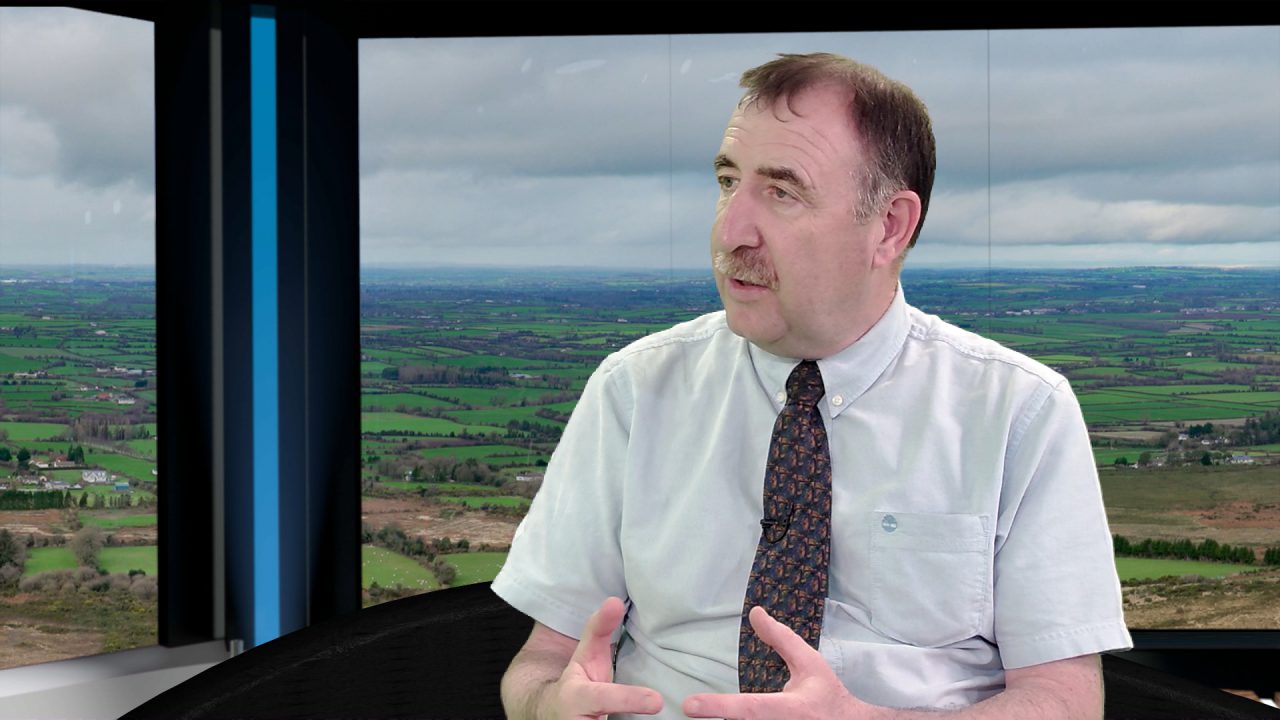The doubling in price of green diesel, and other related cost increases, cannot be absorbed by agricultural contractors, chief executive of the Farm and Forestry Contractors of Ireland (FCI), Michael Moroney, has warned.
Nobody and no business could absorb a doubling of fuel costs without passing some of it on, he told Agriland.
“At this stage, we don’t know what the extent of that will be, and it may vary, but there will be some mechanism needed to pass on the cost,” he said.
“The diesel is a big cost but almost everything else that our members purchase has gone up in price too: Tyres have gone up by 50%; machinery parts have become more expensive; lubrication oil has become more expensive; and the price of AdBlue, which is in about 50% of the tractors, has doubled [since November 2021].”
Ringfence fuel call
The FCI chief was commenting in the wake of the association’s call for 200 million litres of green diesel – described as an immediate short-term requirement – to be ringfenced for the farm and forestry contractor sector between the end of April and September 2022.
The association has written to four government ministers on this specific issue: Minister of Finance; Minister of Public Expenditure and Reform; Minister for Agriculture, Food and the Marine; and the Minister for Transport.
If that supply of green diesel is not ringfenced, according to the FCI, there will not be enough fuel to harvest the national silage crop.
This would lead to lower winter fodder supplies, leading to additional feed costs, which will have negative consequences for dairy and meat production on Irish farms, the FCI said.
Contractors parking up
While the vast majority of FCI members are striving to operate as normal, some, the chief executive said, have made the decision not to cut silage this year.
“Some contractors have made a decision, based on the information so far, that they won’t go out cutting silage this year.
“We can’t quantify it at this stage but put it this way, if 10 separate contracting businesses decide that the game is up and they can’t sustain it, financially speaking, that is a shortfall in output of 30,000ac at a minimum [harvested].”
And there is a concern that more contractors may be out of business as the year goes on.
“Some may be forced to because of fuel issues, but also the level of credit available from some fuel suppliers has disappeared, so if you are depending on credit, and you don’t get paid until October or November, then you have a significant problem,” said the FCI chief executive.
Key numbers according to the FCI
- There are approximately 700 self-propelled silage harvester fleets in operation in the country;
- These fleets consume about 3,000L/day, harvesting an average of 100ac of grass silage;
- This results in a daily fuel demand of 2.1 million litres, which, over a 45-day harvesting season brings a fuel demand of almost 95 million litres;
- In the bale-silage sector, there are close to 2,000 separate fleets, that bale more than 20 million bales annually. Mowing, tedding, and baling a bale of silage will use between 3.5-4.5L/bale;
- Somewhere between 50-70 million litres of green diesel will be required to be available to complete the baled silage harvest in Ireland in 2022;
- One litre of AdBlue is consumed for every 20L of green diesel used;
- More than 50% of the tractors in FCI member fleets are now AdBlue compatible;
- The sector consumes more than 10 million litres of AdBlue each year.
“We have quantified the use levels within the sector for the period we have identified,” said Moroney.
“On that basis, we are saying to the government – if they are serious about maintaining agriculture as one of our essential industries, and the whole concept of food security – then a very necessary part of that is to have a silage harvest this year. The fuel required for that needs to be ringfenced.”
He said the price of that fuel should also be monitored due to the huge variations in price that the FCI is hearing about.
Other FCI calls
In addition to the ringfencing of fuel, the FCI has renewed its call for carbon tax to be removed from green diesel for a period of five years.
It is also calling of government and the Department of Agriculture, Food and the Marine to create a national register of contractors, in association with Revenue.
This is not a new call, but it is more pressing now, Moroney said.
“If we are to have some mechanism of ringfencing the diesel supply, then we need to know who it is being ringfenced for. For that reason, we need to establish who the contractors are in the country,” he explained.
No precedence
“This is the first time in 70 or 80 years that we have had a crisis like this and we had a very different kind of agriculture back then.
“There are no parallels, there is no precedence, but the world is not running on precedent at the moment. The circumstances are too different,” he said.
